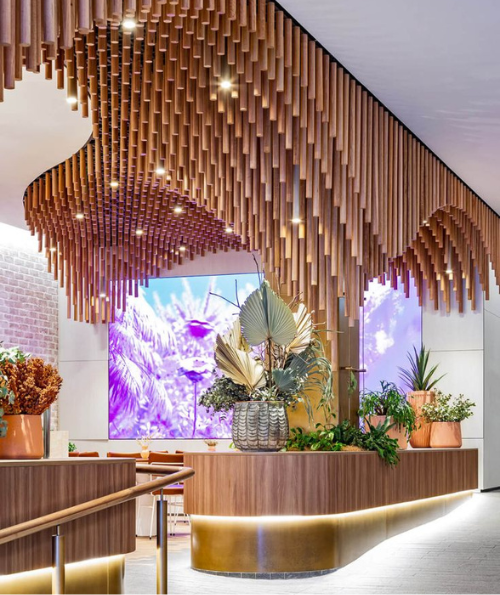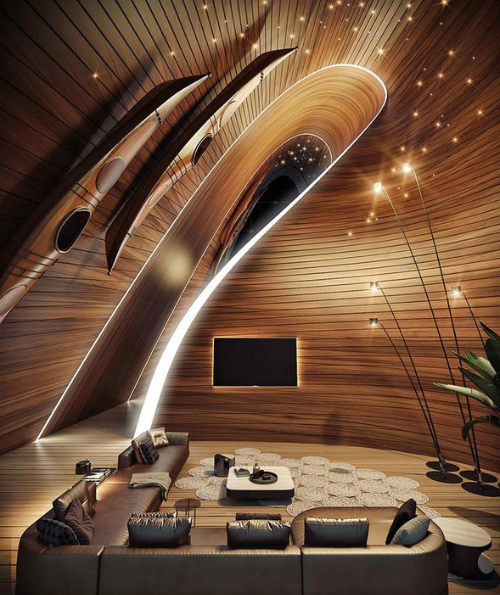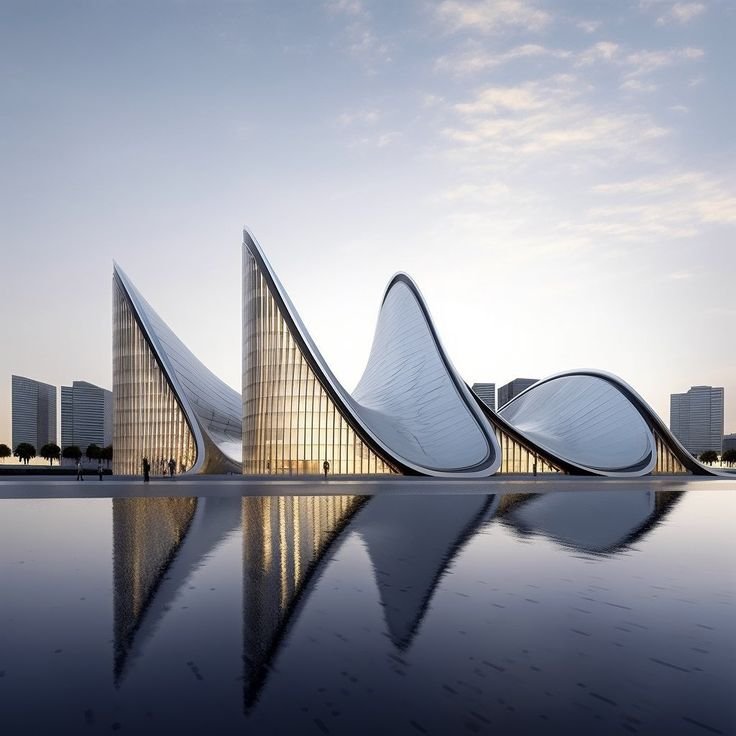In the ever-evolving landscape of design and architecture, the emergence of parametric design and generative algorithms has forged an exhilarating path towards uncharted creative frontiers. As architects and designers delve into the realm of parametric design, a paradigm shift unfolds, redefining our understanding of form, structure, and spatial organization. The marriage of mathematical precision and aesthetic innovation is not merely a convergence of opposites; rather, it is an alchemy that births an entirely new era of design possibilities.

The era of parametric design is more than a departure from tradition; it is an avant-garde movement challenging the static nature of conventional design methodologies. Parametric design beckons designers to relinquish the shackles of predetermined forms and embrace dynamism. This approach is characterized by a set of parameters that serve as the architect’s palette, guiding the generative algorithms toward the creation of structures that defy the limits of human intuition. In this dynamic dance between computation and creativity, architects find themselves standing at the nexus of innovation and tradition.

Generative algorithms form the lifeblood of this creative revolution, acting as the engine that propels the iterative generation and evaluation of design solutions. The process is not one of relinquishing control but rather engaging in a symbiotic relationship where human ingenuity navigates the algorithmic logic. The result is a dialogue that unfolds iteratively, birthing designs that resonate with a complexity that goes beyond the mere visual appeal. It is within this complexity that the essence of parametric design lies — an essence that embodies both mathematical precision and aesthetic innovation.
Parametric Design: A Paradigm Shift in Creativity
Parametric design represents a departure from conventional design methodologies, introducing a parametric approach that leverages algorithms to generate and manipulate complex geometries. Unlike traditional design, which relies on static and predetermined forms, parametric design embraces dynamism, allowing for the creation of intricate and adaptive structures. By establishing a set of parameters that govern the design process, architects and designers can explore a vast array of possibilities, leading to unprecedented levels of creativity.

Generative Algorithms: The Creative Engine
Generative algorithms serve as the backbone of parametric design, providing the computational power to iteratively generate and evaluate design solutions based on predefined parameters. This dynamic and iterative process enables designers to explore an immense design space, fostering a dialogue between the algorithmic logic and the designer’s intuition. The synergy between human creativity and machine computation results in a symbiotic relationship, opening avenues for innovation previously unimaginable.

Mathematical Precision and Aesthetic Innovation:
The marriage of mathematical precision and aesthetic innovation is the hallmark of parametric design. The intricate forms and structures produced through generative algorithms possess a level of complexity that transcends human intuition. This precision is not merely an exercise in mathematical rigour; rather, it becomes a canvas for aesthetic exploration. Parametrically designed structures evoke a sense of harmony, showcasing the delicate balance between mathematical order and aesthetic beauty.

Case Studies: Exemplifying Parametric Design in Practice
Sagrada Família, Barcelona: A Natural Symphony in Stone and Light

Antoni Gaudí’s magnum opus, the Sagrada Família, stands as a testament to the transformative power of parametric design principles. Gaudí, often hailed as the master of organic architecture, leveraged generative algorithms in the late 19th and early 20th centuries to create a cathedral that transcended the limitations of traditional Gothic design. The Sagrada Família’s awe-inspiring organic forms, resembling natural complexities, were meticulously crafted through parametric algorithms that allowed Gaudí to mimic the intricacies found in the natural world. From the branching columns inspired by trees to the celestial illumination that filters through vibrant stained glass, every aspect of the Sagrada Família represents a symphony of parametric brilliance, harmonizing the mathematical precision of algorithms with the aesthetic beauty of the organic.
Heydar Aliyev Center, Baku: Fluidity Defying Convention

Zaha Hadid Architects’ design of the Heydar Aliyev Center in Baku is an embodiment of the fluidity and curvature achievable through parametric design. This architectural marvel, completed in 2012, defies traditional spatial expectations, inviting visitors into a futuristic landscape where the boundaries between form and function dissolve. The entire structure, devoid of sharp edges or conventional lines, was crafted through generative algorithms that allowed for a free-flowing exploration of form. The undulating surfaces, vast open spaces, and absence of supporting columns within the building’s interior showcase the limitless possibilities that parametric design offers. It is a structure that not only challenges architectural norms but also redefines the very essence of spatial experience.
The Eden Project, Cornwall: Ecosystems Shaped by Algorithmic Precision

Sir Nicholas Grimshaw’s design of the Eden Project’s biomes represents a harmonious marriage of architecture and nature, orchestrated by the precision of generative algorithms. Completed in 2001, the biomes house diverse ecosystems within geodesic structures, each optimized through parametric design principles. The algorithmic precision ensures the efficient distribution of panels, maximizing sunlight exposure for the varied plant life within. The result is a symphony of controlled environments, each responding dynamically to the needs of the ecosystems they house. The Eden Project exemplifies how parametric design extends beyond exteriors, shaping the very interiors where ecosystems thrive in carefully calibrated harmony.

These case studies collectively showcase the versatility and transformative potential of parametric design. From the organic grandeur of the Sagrada Família to the fluid futurism of the Heydar Aliyev Center and the adaptive ecosystems within the Eden Project, each structure represents a unique manifestation of how generative algorithms can push the boundaries of conventional design, ushering in a new era where form and function dance in a seamless union The influence of parametric design extends beyond architectural exteriors to reshape the interiors of spaces. Interior designers are leveraging generative algorithms to create bespoke furniture, lighting, and spatial configurations that respond dynamically to user needs. The era of one-size-fits-all is yielding personalized, adaptive interiors that seamlessly blend form and function.

As we traverse the unexplored terrain of parametric design, the boundaries of traditional architecture and design dissolve, giving birth to a new aesthetic language. The alchemy of form, forged through the fusion of mathematical precision and aesthetic innovation, paints a canvas where designers are no longer constrained by static ideals. Instead, they navigate a realm where creativity is unshackled, and structures emerge as living, breathing entities shaped by the dynamic interplay of human ingenuity and computational prowess. As we stand on the precipice of this technological revolution, the symphony of parametric design beckons, inviting architects and designers to orchestrate a future where the limits of design are constrained only by the boundless expanse of human imagination.


